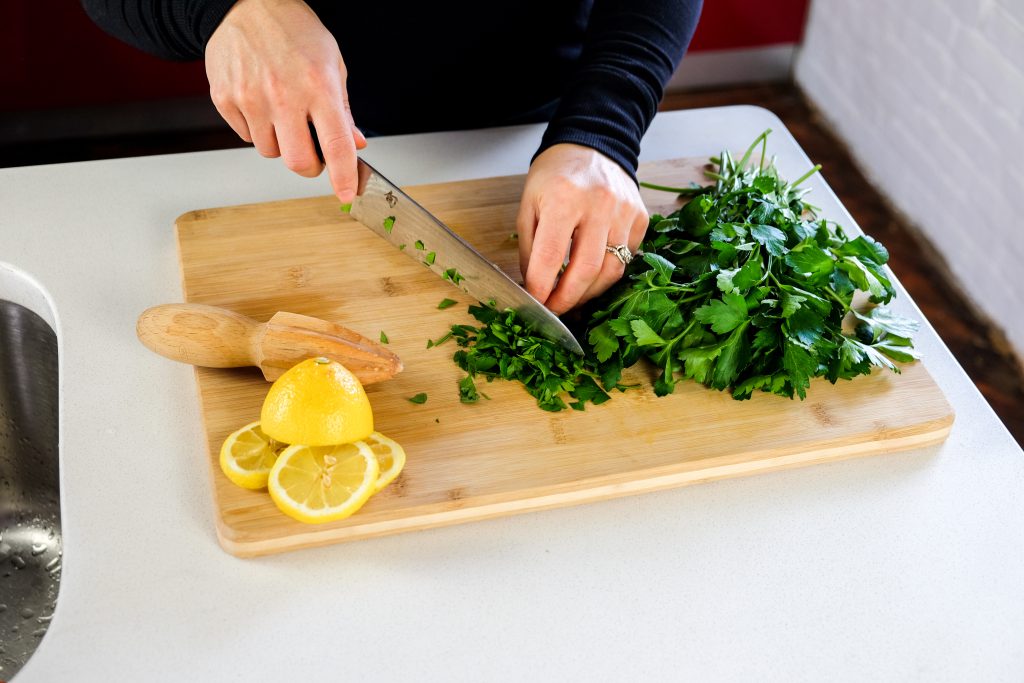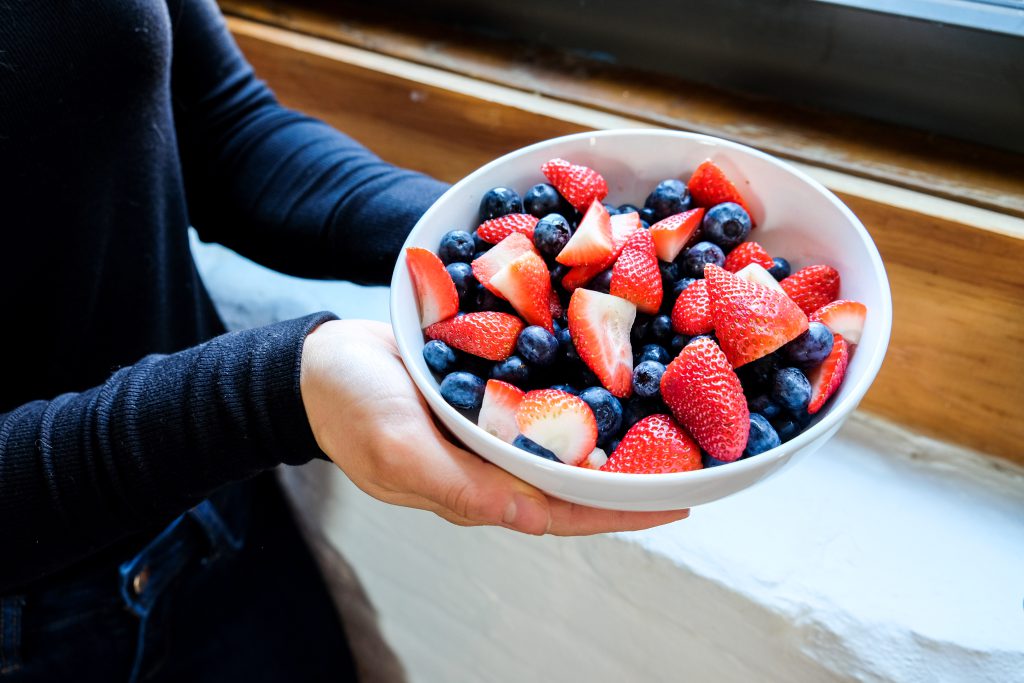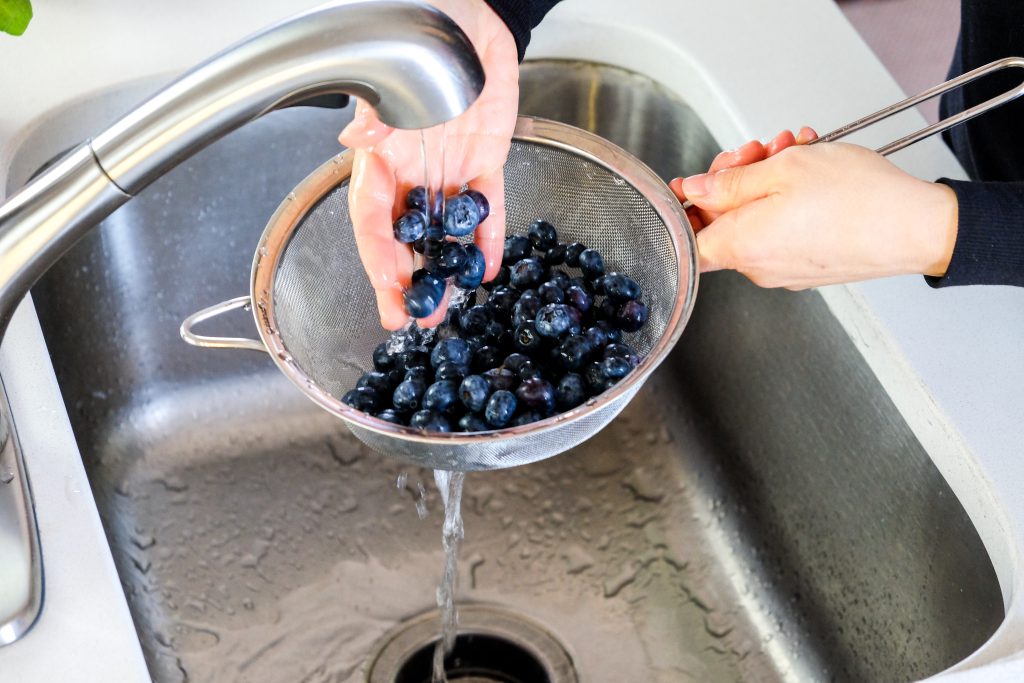Last week, the Environmental Working Group released its annual shoppers guide to pesticides in produce, AKA the “dirty dozen” and the “clean fifteen.” The dirty dozen are the top 12 fruits and vegetables that are most “contaminated” (their words) by pesticides, and the clean fifteen are 15 fruits and vegetables that are the least, or “safest,” to eat conventional.
According to the EWG, they obtain their data from the USDA and FDA reports on pesticide levels in produce after washing and peeling (if applicable). It’s important to note that the EWG is NOT a government agency.
The USDA does pesticide residue testing yearly, and acceptable pesticide residue levels are set by the Environmental Protection Agency (EPA). In their 2019 report, out of 10,000 samples 99% of fresh, frozen and processed foods had residue levels below the EPA tolerance level, and more than half had no residue at all. We have no reason to believe consuming conventional produce treated with pesticides is detrimental to the general health of the population. That being said, nothing is more individualized than nutrition. It’s possible that pesticides could affect one person, and could not affect another 100. As with most things, this is not a black and white issue.

Why organic?
Organic farming is positive for the environment and our ecosystems. It’s also difficult and costly, which is why an organic fruit can be 2-3x more expensive than its conventional counterpart. There is no difference in the nutritional profile of an organic item vs. conventional item.
It’s also important to know that organic does not mean pesticide-free. It would be extremely difficult for us to buy organic strawberries in January in New Jersey if they were not treated with any pesticides/fungicides/herbicides. They would absolutely rot before getting to us. Therefore, we must understand that organic pesticides exist and are used in organic farming.
It’s also possible that organic farms suffer contamination from non-organic pesticides due to cross-contamination. I’m sure you are picturing a sweet little organic strawberry field in California all alone on vast field of green, nothing else in sight. I’d tell you that is rare. Farms are often close enough to one another (organic and conventional) that wind, insects and water can carry pesticides from one farm to the next.
So, organic farming is good for the environment (this is pretty important actually), no different nutritionally than conventional, and not necessarily pesticide-free.

Why conventional?
If the choice for you is to either eat conventional produce or eat no produce, please eat conventional. Sometimes even I feel less-than when I stock up on all my conventional produce and I see others with carts full of organic, but I know it’s all I can do since I eat produce in such great quantities. The point of the “dirty dozen” list is in part to say hey, we know you can’t buy ALL organic ALL the time, so at least focus on these 12. But like I said, you have to have the budget for that.
Conventional farming gives us access to year-round foods and at fair prices. The pesticide residue levels are maintained by the EPA and verified to be below limits by the USDA. The nutritional profile is the same as organic.
Can you get rid of pesticide residue on conventional produce?
In your home kitchen, you won’t be able to remove all of the pesticide residue from your fresh produce. You can, however, wash it.
I know that seems too simple to be true, but it is! People will say, “come on. You are telling me I can just run a handful of grapes under water and I will wash off the pesticides?” Not necessarily. I mean really wash it. Most pesticides are water-soluble.
Washing conventional produce with tap water for 2 minutes can reduce pesticide levels on average by 50%, and in some cases 70%.

Here’s what I do: put your produce in a big bowl and fill with cool water. For two minutes, while the water is running on low, use your hands to wipe or a produce brush to gently scrub around what you are washing. Drain well and let air dry in a strainer or wipe with paper towels. Does that sound so hard?!
In a perfect world, would we all eat organic? Sure, but this is not a perfect world and farming is not that simple. For now, we will do what we can with what we have and committing to washing is an effective step to take.
